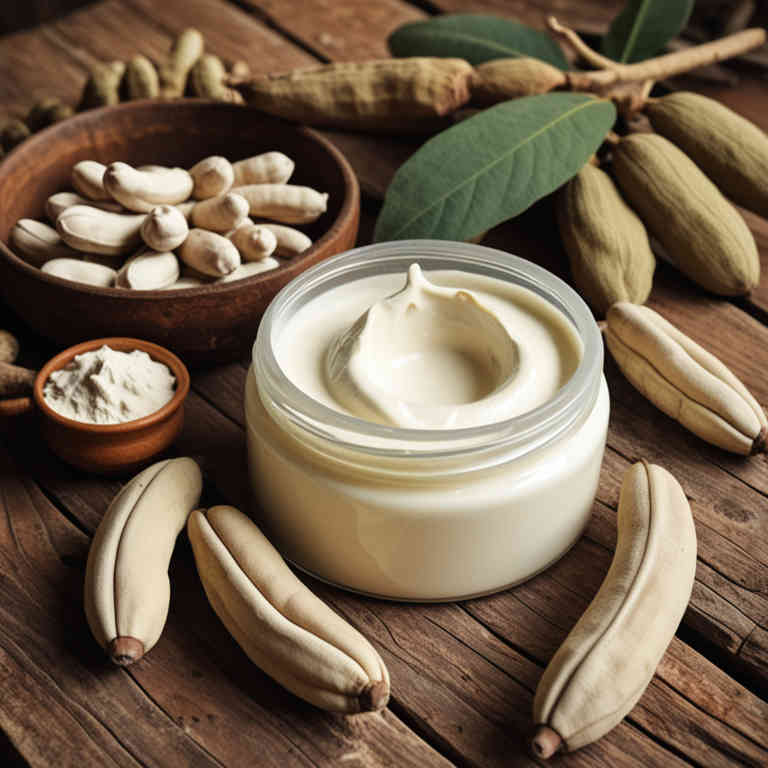Mucuna pruriens cream for medicinal use

Mucuna pruriens cream is a topical herbal preparation made from the seeds of the Mucuna pruriens plant, commonly known as the cow-itch plant.
This cream is used in herbalism to support nerve health and may help alleviate symptoms of conditions like Parkinson’s disease due to its high content of L-dopa, a precursor to dopamine. It is often applied directly to the skin to reduce inflammation and promote healing in musculoskeletal conditions. The preparation is valued for its potential to enhance mood and cognitive function when used as part of a holistic treatment plan.
Herbal practitioners may recommend it for its calming and restorative properties in both physical and mental wellness.
Uses
Mucuna pruriens cream has been used to support sexual health and enhance libido for centuries, particularly in Ayurvedic and traditional Indian medicine.
Historically, it was valued for its potential to improve fertility and treat erectile dysfunction, with its active compound, L-DOPA, believed to stimulate nerve function and hormone production. In modern times, the cream is increasingly used as a natural supplement for men's health, with research exploring its role in managing symptoms of Parkinson's disease and improving mood. It is also being studied for its possible benefits in treating depression and enhancing cognitive function.
However, further clinical trials are needed to fully validate these claims and ensure safety.
Benefits
Mucuna pruriens cream has health benefits such as enhancing libido, improving mood, and supporting muscle function due to its high content of L-DOPA, a precursor to dopamine.
This herbal preparation is often used to address symptoms of depression and anxiety by boosting neurotransmitter levels in the brain. It may also aid in managing Parkinson's disease symptoms by promoting dopamine production. The cream can be applied topically to reduce inflammation and soothe skin irritations.
Overall, Mucuna pruriens cream offers a natural approach to improving both mental and physical well-being.
Constituents
Mucuna pruriens cream active constituents include L-dopa, protein, alkaloids, and flavonoids.
These compounds are known for their potential to support neurological health and mood regulation. L-dopa, in particular, is a precursor to dopamine, which may help in managing symptoms related to Parkinson's disease. The protein and alkaloids contribute to the cream's anti-inflammatory and antioxidant properties.
Flavonoids enhance the overall therapeutic effects by promoting skin health and reducing oxidative stress.
Preparation
To make Mucuna pruriens cream, first gather fresh or dried Mucuna pruriens pods, which are known for their high content of L-DOPA.
Wash the pods thoroughly and grind them into a fine powder using a blender or mortar and pestle. Next, mix the powder with a carrier oil, such as coconut or almond oil, in a ratio of 1 part powder to 2 parts oil, and let it steep for 24 hours. After straining the mixture to remove any solids, add a small amount of beeswax to solidify the cream and blend well.
Finally, store the cream in a cool, dark place or refrigerate for longer shelf life.
Side Effects
Mucuna pruriens cream may lead to skin irritation or allergic reactions in some individuals due to its active compounds.
It is often used for its potential benefits in treating conditions like Parkinson’s disease and erectile dysfunction. However, prolonged use can cause systemic absorption, leading to hormonal imbalances. Possible side effects include nausea, vomiting, and dizziness.
It is important to consult a healthcare professional before using this preparation, especially for those with pre-existing medical conditions.